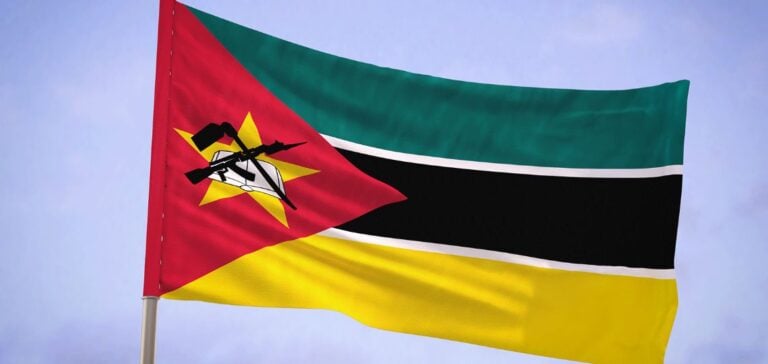The Mozambique LNG project, spearheaded by TotalEnergies, remains on hold, three years after its suspension in 2021. This decision was initially made following a jihadist attack near the site in the Cabo Delgado province, located in northern Mozambique. The region, rich in gas reserves, has been a target of armed groups affiliated with the Islamic State since 2017.
TotalEnergies has stated that the project’s resumption, representing a total investment of $20 billion, is conditional on restoring security in the province and officially lifting the “”force majeure”” clause. This contractual mechanism allows a company to suspend its obligations in the face of unpredictable and insurmountable events.
Delayed objectives despite progress
In October 2024, Patrick Pouyanné, CEO of TotalEnergies, informed investors that production could begin in 2029, provided the project restarts by the end of 2024. He mentioned relative progress in terms of security on the ground but noted that the agreement of three credit agencies was still awaited to finalize project financing.
However, several hurdles remain. The group is particularly awaiting political guarantees after contested presidential elections in the country. The recently re-elected president, Daniel Chapo, inaugurated in January 2025, has yet to meet with Patrick Pouyanné, a meeting initially planned after the elections.
Controversies and calls for investigations
In addition to security challenges, accusations of abuses involving military forces protecting the site have emerged. In September 2024, Politico reported allegations of torture and abuse, which the Mozambique LNG subsidiary denied, asserting the absence of evidence to support these claims.
A coalition of 126 NGOs recently criticized the lack of initiatives supporting an international investigation into alleged civilian massacres. These NGOs, including Urgewald and Friends of the Earth, accused financial institutions involved in the project of failing to take a public stance on these incidents.
A market focused on Asia
Designed primarily to supply Asian customers, the Mozambique LNG project is strategically important in the context of rising global demand for liquefied natural gas. TotalEnergies holds a 26.5% stake, alongside other partners such as the Japanese group Mitsui (20%).
However, political and security issues in Cabo Delgado remain significant obstacles to resuming activities. As the global gas market evolves rapidly, uncertainties in Mozambique raise questions about the project’s ability to meet investor and consumer expectations in the medium term.






















